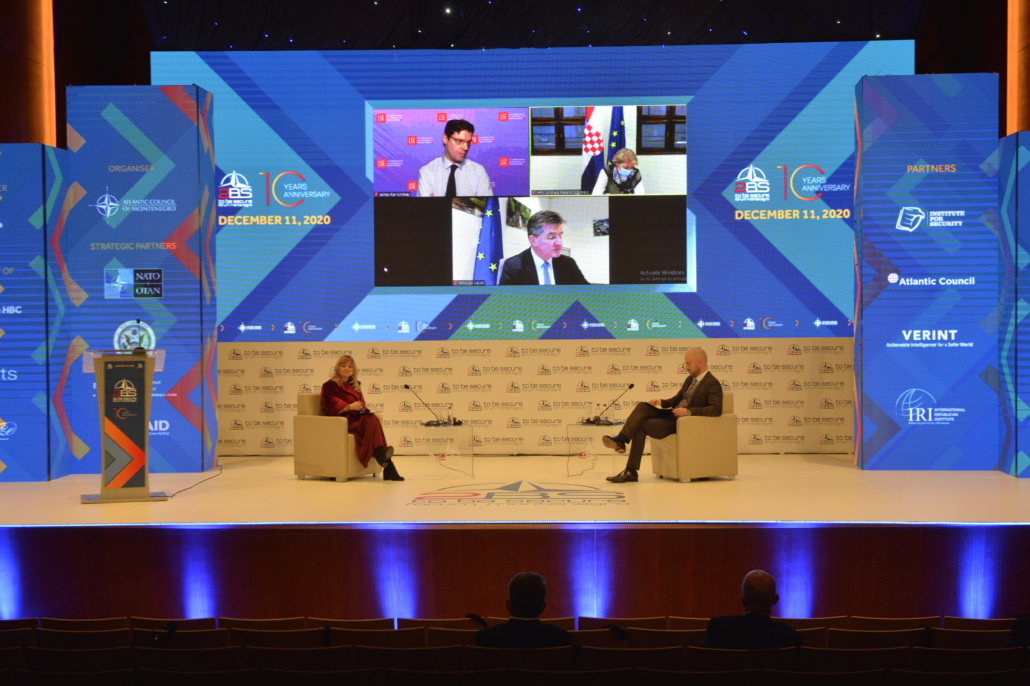Minister of Foreign Affairs of Montenegro Đorđe Radulović said that the foreign policy priorities of Montenegro would not be changed.
We remain dedicated to the EU membership, we want to remain credible NATO partner, the August elections will not change anything even though there are such fears, he stated.
I want you to know that there will be no changes in that respect. We remain dedicated to such goals, as well as to the strengthening of the good neighborly relations, said Radulović at the panel entitled Charting a Way Forward in a Post-Pandemic World.
He said that Montenegro would continue to follow the same policy as the EU and that he would do anything to intensify the until recently stalled integration processes.
Radulović emphasized that while protecting its priorities, Montenegro did not want to create enemies elsewhere.
We are not the enemies of Russia, but it should be noted that our priority is common security and defense policy proclaimed by the EU, Radulović concluded.
EU Special Representative for the Belgrade-Pristina Dialogue and other Western Balkan regional issues Miroslav Lajčak believes that Western Balkan countries should continue cultivating their orientation towards the EU. I know that the negotiations have been stopped, but we are here, do not be discouraged, he stated.
The example of North Macedonia showed that there were no obstacles to achieve something if there was a will, and I am sure about the positive future of the Western Balkans, Lajčak said, adding that the Balkans have been known for producing more history than it can digest.
Please, one can learn from the past, but one should not allow it to crowd out the present and to blur the vision. Remain oriented towards the EU, he requested.
He emphasized that the EU aid to the Western Balkan countries at the time of the pandemic testified to the Union’s devotion to the region.
Of course, candidate countries must prove themselves; they must show that they are qualified to join the club they want, Lajčak said.
Asked to comment on the new methodology of the accession process to the EU, Andreja Metalko Zgombić, State Secretary in the Ministry of Foreign and European Affairs of Croatia, said that the methodology gave a new impulse in the accession process as counties were to be encouraged to speed up their internal reforms and that the possibility of rewarding those who had been doing their work meticulously could be nothing but encouraging.
She called upon to lower down the nationalistic tensions and expand the political dialogue.
We support Montenegro wholeheartedly, she said.
Visiting Professor at London School of Economics James Ker-Lindzi said that we lived in a world full of challenges. The post-COVID-19 world brings us new challenges. We know how to respond to many of them, but to some of them, we cannot. I thank that it is all about political will, i.e., to know where the challenges are, Ker-Lindzi said.
Observing the conflict in Belgrade-Pristina relations, it was proved that everything arranged previously stops when it comes to implementation. Reminding on different opinions of the EU and the USA when it comes to resolving the issue, he hopes for their attitudes to become similar after the transfer of power in Washington. He added that the EU must be more ambitious if it wanted to resolve the issue.
Ker-Lindzi emphasized that it was especially disappointing when some countries found the obstacle to continue the EU accession path, not in real problems but the irrational, historical ones.
Is the issue of who Gotse Delchev was more important than the economic or overall progress of the country, he asked alluding to the recent conflict between North Macedonia and Bulgaria. We added that the time had come to remove such issues from the agenda and that people in the Western Balkans thought rationally, he concluded.
